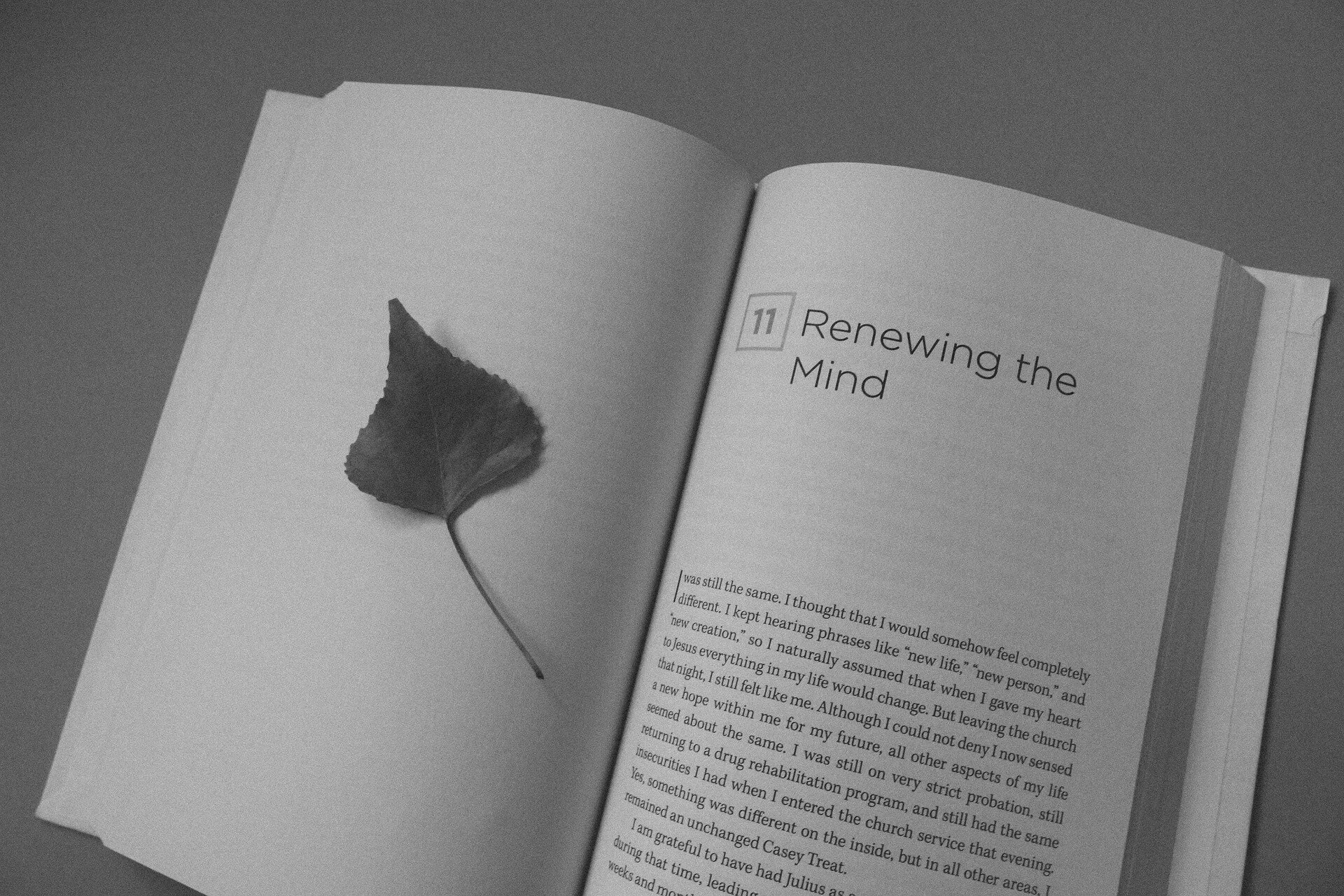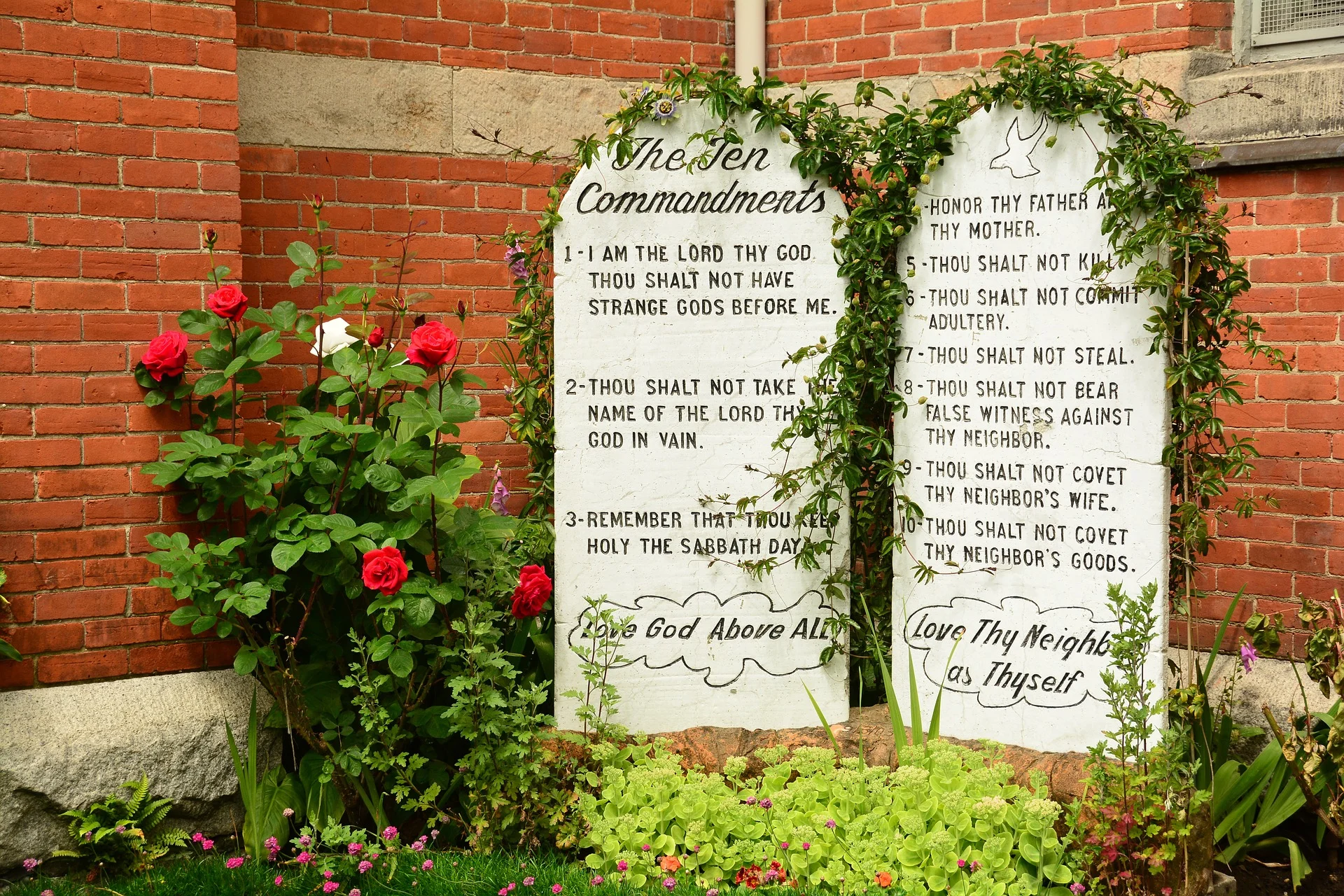Our Unseen Enemy - Part 4: The Liar - Lies About Ourselves
Last week we saw how Satan uses lies about God to manipulate our feelings and beliefs towards Him. I showed you specifically lies about the earth’s origin, God’s goodness, God’s authority and God’s desire to have an intimate relationship with us. There are many more lies that Satan weaves about our sovereign God, but I only want to spend one week on each of these areas.
Today we are going to look at lies Satan tells us about ourselves. Have you ever noticed that voice that whispers in your ear, telling you, you aren’t pretty enough, smart enough, good enough and so on. Have you ever felt that your rights are being infringed upon, that you deserve better or that you are not being treated fairly? I believe most of us could say yes to at least a few of those questions, if not all.
Let’s look at a few of the lies Satan tells us. Be prepared for a multiplicity of opposing messages.
I am Not That Bad
Image by Alexas_Fotos from Pixabay
Aside from our struggles with self-worth I think many of us like to think, we really aren’t that bad. But, what does God’s word say about us?
“23 for all have sinned and fall short of the glory of God,”
“6 For while we were still weak, at the right time Christ died for the ungodly.”
“ 8 but God shows his love for us in that while we were still sinners, Christ died for us.”
“23 For the wages of sin is death, but the free gift of God is eternal life in Christ Jesus our Lord.”
We really are a hot mess aren’t we? We are sinners. This is a word we rarely see in our society and one that is preached on less and less in the church. We are sinful. We have missed the mark of perfection that God ordained from the first day of creation, because Adam and Eve chose to listen to that beautiful, beguiling serpent.
No matter how good you are, you are not good enough. That doesn’t mean we aren’t capable of doing good things, of serving others, of donating money, of helping those who are not able to help themselves, but that does not make us good enough for heaven.
“8 For by grace you have been saved through faith; and this is not of yourselves, it is the gift of God;
9 not a result of works, so that no one may boast.”
This is an important tenant of the Christian faith. Look at that verse again. What was Satan’s biggest sin? Pride. If he had never been prideful, consumed with his beauty and desirous of God’s position, he probably would still be in heaven. Pride, is an insidious sin. It reaches its tendrils deep into our hearts. Why is salvation a gift of God? Because he knew our capacity for pride. Humility is key to entering the Kingdom of God. Remember the Rich Young Ruler? (See Matthew 19:16-26 for the full story) How many will be kept away from the streets of gold, by Satan’s lie, that they really aren’t that bad?
I am Not Enough
Image by Ryan McGuire from Pixabay
Is it any wonder we feel confused all of the time? When we listen to Satan’s lies, we hear messages like the first, telling us we aren’t that bad, we are all going to get into heaven in the end. On the other hand he is constantly telling us, “You are a loser, a failure and you are never going to measure up.”
Our enemy is quite proficient at making us feel like we don’t quite hit the mark. We are constantly being bombarded by these messages through social media, movies, books, advertising and so on. Believe me, even in the blogosphere there is a great temptation to compare ourselves to each other. I fall easily into the message that I am not as pretty as, as thin as, or as productive as. When we hear these voices (or more specifically, our enemy’s voice) in our head we need to go to scripture and see what God says about us.
Yes, we have already established that we are sinners and nothing we can do will measure up to God’s perfection, yet, there is something we can do. We can acknowledge Christ as our Lord and Savior. It is by His perfect sacrifice and His spilt blood that we come to realize our worth in God’s eyes.
“There is therefore now no condemnation for those who are in Christ Jesus.”
If we are Christ followers, then Satan’s words are useless against us, as long as we claim truth. I have done a study on Romans 8 and if you remember verse 1 is one of my favorites. Every time, I hear those thoughts in my head that say, “You are an idiot; What a failure; You’ll never amount to anything,” I take that verse and I wield it like a sword. No one can condemn me, because I AM HIS! His blood made me enough, no matter what anyone else says or thinks.
I Deserve This
Image by S. Hermann & F. Richter from Pixabay
Being a wife and mother, as you have no doubt heard, is a thankless job. One of the lies that Satan loves to taunt us with is the idea that I deserve something. How many times have you felt let down because your husband didn’t notice your new hair cut, or remember your birthday or anniversary? How often did your kids neglect to say thank you or acknowledge all that you have done to make their lives easier? How did it make you feel when that friend who said they’d meet you for lunch, never showed up? It definitely makes a person feel invisible. I know, because I have been there.
During these times, it is easy to listen to Satan’s voice telling us we deserve to be angry, feel slighted or discouraged because of the way others have treated us. In addition, we often feel, that because we have been wounded we deserve to treat ourselves whether it be to a shopping trip or a pint of ice cream. Unfortunately, the only thing that listening to Satan’s lies gets us is a bad attitude, bills and extra pounds.
Our best defense is to be on the offense. Recognize that your spouse, kids, friends and others who have let you down are human, just like you. We will look more at that when we look at Satan’s lies about others. The best thing to do when we are feeling like we deserve something is to take those feelings to our Lord and let Him examine them. Are they feelings brought about by a success or an accomplishment? By all means treat yourself, but if they are feelings brought about by pain and discouragement there is only one place to feel fulfilled and at peace. At the nail pierced feet of our Lord, Jesus.
Read the whole of Psalm 139 for a reminder, that God knows you inside and out and He is always attentive to your feelings.
“23 Search me, O God, and know my heart!
Try me and know my thoughts!
24 And see if there be any grievous way in me,
and lead me in the way everlasting!”
I Have a Right
The desire for rights is innate in us. We want things to be fair. We want to be treated with respect and dignity and want that all people are treated that way; at least we say we do, until our rights are infringed upon.
I do believe there is a place for rights in our world, but I also believe that what God intended as a preservation for those who were and are afflicted and needy has become the war cry of anyone who wants to get their way. Look at all the law suits that have gone to court over attempts at misplaced rights. How much money did McDonalds have to pay to compensate the customer who spilled coffee on themselves and sued the retailer because she got burned? I’m sorry, but if I am buying a cup of coffee at McDonalds, I want it to be hot. If I spilled scalding coffee on myself, I would automatically think, “What a klutz I am,” and then go home and nurse my wounds. I would have never thought that my rights had been infringed because the retailer gave me exactly what I asked for.
The problem with a rights based mentality is that everything that does not measure up to your standard suddenly becomes about your rights. How many of the riots that happened over the last few months were truly about rights? How much of the violence that ensued at many of them were instigated by people who had nothing at all invested in the protest? Please don’t get me wrong. I believe racial, and economic disparities need to be investigated and changed, but in a true rights oriented society rights are for the good of the whole society, not just one particular person or group.
Satan will use whatever means it takes to create division, hatred, lust and covetousness among us all. He knows that these things will be our undoing and undoing is exactly what he wants.
Martin Luther King, Jr. is probably one of the first people we think of when we think of human rights in our country. He was a man of spiritual depth and wisdom. Read the following quotes.
“Property is intended to serve life, and no matter how much we surround it with rights and respect, it has no personal being. It is part of the earth man walks on. It is not man.”
“An individual has not started living until he can rise above the narrow confines of his individualistic concerns to the broader concerns of all humanity.”
“The limitation of riots, moral questions aside, is that they cannot win and their participants know it. Hence, rioting is not revolutionary but reactionary because it invites defeat. It involves an emotional catharsis, but it must be followed by a sense of futility.”
“We are not makers of history. We are made by history.”
“Love is the only force capable of transforming an enemy into friend.”
“People fail to get along because they fear each other; they fear each other because they don’t know each other; they don’t know each other because they have not communicated with each other.”
“In the process of gaining our rightful place, we must not be guilty of wrongful deeds. Let us not seek to satisfy our thirst for freedom by drinking from the cup of bitterness and hatred. We must forever conduct our struggle on the high plane of dignity and discipline. We must not allow our creative protest to degenerate into physical violence. Again and again, we must rise to the majestic heights of meeting physical force with soul force”
There are many more tidbits of wisdom from this man. Being a black man at the time, he completely understood the gaping crevice caused by the disparity between blacks and whites, but he also understood that the way to bring about change was not through hatred. Demanding our rights through anger, violence and force is a plot of the enemy, to be sure, both for those who are angry and for those who are fearful.
I Shouldn’t have to Feel Pain
Image by Stefan Keller from Pixabay
Perhaps one of the most detrimental lies the enemy dangles in front of our faces is that we shouldn’t have to feel pain, have things go wrong or live without pleasure. I am lumping this all together, because so often pain and pleasure go hand in hand.
God created a perfect world; a world without pain or suffering, but Adam and Eve’s choice to eat from the tree God had told them not too, ushered in a lifetime of generations of pain, sorrow and hardship, most of which are directly related back to sin. Childbirth, as most women who have had children naturally know, is painful. Kidney stones are painful. Surgery, cuts, headaches, achy joints and aging can all be painful. The amount of money, time and effort that our world spends trying to deal with pain is overwhelming and the ramifications of the desire to live without pain is evident in the catastrophic use of pain meds, psych meds and related therapies that cost millions of dollars every year. Many of these drugs lead to permanent addictions, that are extremely hard to pull out of and cost millions more to pay for different drugs, counseling and therapies.
In addition our society is consumed with pleasure. The desire to feel good all the time has become a way of life that eats away at our time, our pocketbooks and our very souls. Pleasure seeking and its related pursuits also results in many forms of addiction and bondage from eating disorders and drug use, to pornography and human trafficking.
Satan would like us to think that we shouldn’t have to deal with pain or that gnawing sense of emptiness. His lies tempt us to believe that people, or things, drugs or drink, sex or perversion will assuage the numbness that becomes our death companion when we are alone. People do not want to be alone and they don’t want it to be silent, or they will remember they are not fulfilled or happy.
“Man is also rebuked with pain on his bed and with continual strife in his bones,”
“For I am ready to fall, and my pain is ever before me.”
“But I am afflicted and in pain; let your salvation, O God, set me on high!”
“Why do you cry out over your hurt? Your pain is incurable. Because your guilt is great, because your sins are flagrant, I have done these things to you.”
“He will wipe away every tear from their eyes, and death shall be no more, neither shall there be mourning, nor crying, nor pain anymore, for the former things have passed away.””
Pain is a reality and the yearning we feel that often goes unfulfilled is the imprint of God on our hearts. He was, is and always will be the One who was meant to fill all of your longings.
Satan is lying to us about God and he is lying to us about ourselves. He uses our desire to be “somebody”, our desire to get what we think we deserve, our demand to have our rights fulfilled, and our desire to not feel pain, but only pleasure, to control us. The freedoms we as people are yelling about have become the shackles binding our hearts and our minds. He has us bound and has thrown away the key.
But, there is good news. Someone has a copy of the key and He can release us from these binds.
I hope you are encouraged in your walk with Jesus through this study we have been doing on our

































































































